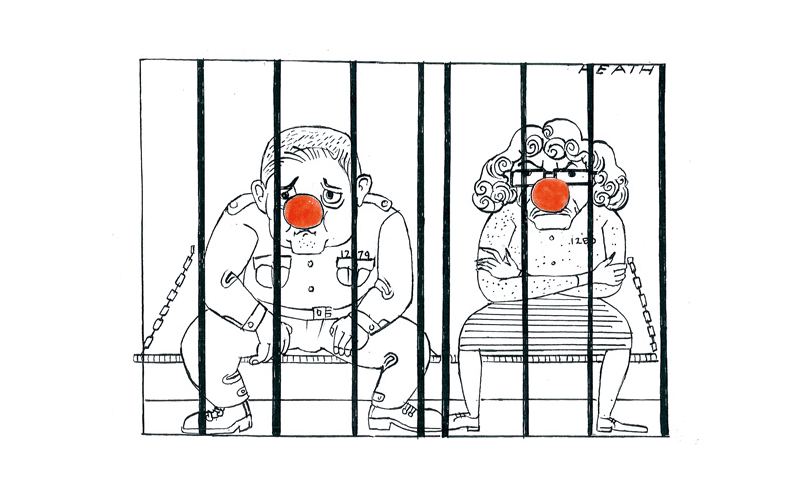Nobody has done much travelling this winter apart from Instagram influencers travelling to Dubai to pose with baby tigers. But the United Arab Emirates is now on the government’s red list. Should the influencers wish to return home they face a dilemma: spend £1,750 to be locked up for ten days in a Slough Premier Inn, or (and I fear this may come more naturally to some influencers) lie.
Lying about where you have come from, though, is to be made exceedingly risky, with a maximum ten year prison sentence about to be introduced. For the same number of years — should you be so inclined — you could be cruel to your children, cause them to suffer serious physical harm, make indecent images of them, sexually assault their mother, threaten to kill her and then, to make your threat seem credible, join Isis (if they would have you, which I guess they probably would). All these offences carry a possible ten year prison sentence, albeit some of these activities could probably be carried out more easily in Dubai.
If quarantine is to work it does require sanctions — but a ten year prison sentence is absurdly disproportionate
If quarantine is to work it does, of course, require sanctions to prevent evasion — but a ten year prison sentence is absurdly disproportionate. No judge in their right mind is likely ever to impose such a term: if travellers are so bothered about having to live in a Travelodge for two weeks that they feel obliged to lie about it, the threat of a few months under the even worse conditions of HMP Bronzefield should be a more than sufficient deterrent.
And if the maximum sentence available is to be ten years you can forget about swift justice: the case of the returning influencer would have to be tried in the Crown Court. At present some cases reaching the Crown Court now are being listed for trial in 2023. With so many cases involving child witnesses and defendants in custody, allegations about lying to evade quarantine are unlikely to jump the queue. If any swingeing sentences are ever imposed it will probably be long after Covid has either mutated or vaccinated into sniffles, or we have learnt to live with it without undue panic.
Whether these quarantine laws are actually needed is a matter for politicians. Unless they cover travel from all countries it seems rather unlikely that they will make a great deal of difference. But if they are needed they should not be patently ridiculous, and they should be capable of swift enforcement in the Magistrates Court.
The latest rumour, rumour being the pandemic substitute for a white paper, is that the government proposes to use the Forgery and Counterfeiting Act 1981 to prosecute people. Leaving to one side the constitutional point that it’s for the Crown Prosecution Service, not the government, to initiate prosecutions, the offences under that act which carry a ten year sentence all relate to the forgery, possession or use of counterfeit currency; they cannot possibly be adapted to lying on a quarantine form. If the government wants a ten year sentence it will have to legislate for it.
Over the last ten months, ministers — hardly ever Parliament — have introduced a cats-cradle of incomprehensible coronavirus laws, usually without prior debate or scrutiny. There is now hardly anyone in the country, even the ministers themselves, who has any clear idea of what is or is not permitted. All this secondary legislation may have protected us from an even worse public health disaster but the process has done nothing to foster a respect for the rule of law.
You do not need to be Lord Sumption to realise that this ridiculously severe maximum sentence will further undermine what respect remains.






Comments